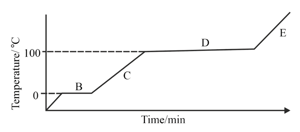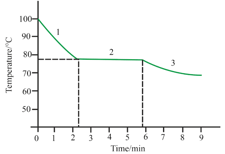David Sang Solutions for Chapter: The Kinetic Model of Matter, Exercise 1: Questions
David Sang Physics Solutions for Exercise - David Sang Solutions for Chapter: The Kinetic Model of Matter, Exercise 1: Questions
Attempt the free practice questions on Chapter 9: The Kinetic Model of Matter, Exercise 1: Questions with hints and solutions to strengthen your understanding. Cambridge IGCSE® Physics Coursebook Second Edition solutions are prepared by Experienced Embibe Experts.
Questions from David Sang Solutions for Chapter: The Kinetic Model of Matter, Exercise 1: Questions with Hints & Solutions
To measure a volume of a liquid, you can pour it into a measuring cylinder. Measuring cylinders come in different shapes and sizes- tall, short, wide, narrow. Explain why the shape of the cylinder does not affect the measurement of the volume.
What name is given to the temperature at which a gas condenses to form a liquid?
What name is given to the process in which liquid changes to solid?
What name is given to the temperature at which liquid changes to solid?

In the figure given, what is happening to ice at point ?

Name the substance or substances present in the section marked .

From the figure, deduce the melting point octadecanoic acid.
The below table shows melting point and boiling points of nitrogen and oxygen, the main constituents of air. Why can we not talk about the melting and boiling points of air?
| Substance | Melting point | Boiling point |
| Nitrogen | ||
| oxygen |
